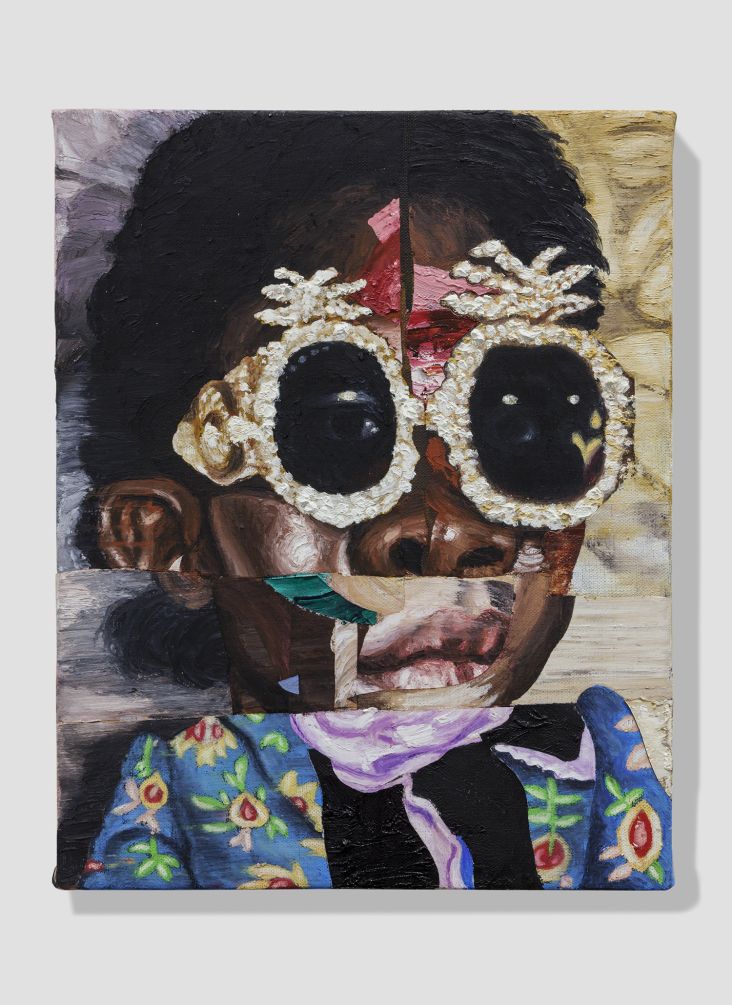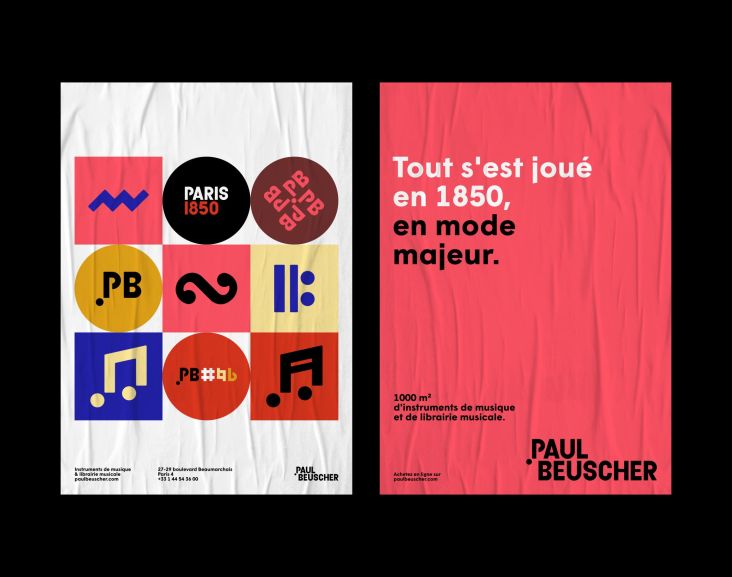Practical tips to help creatives tackle the most common anxious thoughts
If there could be a theme for 2018, I'd say that anxiety has played its ugly part for many people in the creative industries. The state of the world, climate change and next year's looming Brexit, they're all making us fear what will happen next.
](https://www.creativeboom.com/upload/articles/53/53a5c5204dd0599f17eb2fcfb66d67e608473899_1280.jpeg)
Image licensed via Adobe Stock
As you know, anxiety is accompanied by obsessive worrying, which can turn us into unproductive insomniacs. The whole "fight-flight" response kicks in, and our nervous system takes a battering. But because there isn't necessarily anything to run from, stress builds up, and we can't do anything to release it. What we're left with is a mind continually whirring with negative thoughts. We imagine all sorts of disastrous scenarios. Make up entire fictional dramas in our heads. We convince ourselves something wrong's going to happen even if it never does.
Symptoms can vary. Perspiration, nausea, tunnel vision, restlessness, muscle tension – even shortness of breath can all happen as a result of excessive worrying. And if you suffer from anxiety for more extended periods, you could be vulnerable to burnout. Not a great thing.
If your job or business is causing you anxiety, you're not alone. I reached out, asking friends and followers on Twitter for some of their constant worries, and it's surprising how many of us suffer from the same anxious thoughts. I've gone through some of the most common below, providing practical tips to help you cope.
I'm the only person alive suffering from anxiety. If people knew, they'd think I was weak.
It's just not true. Everyone worries. It's part of human nature. Anyone who claims otherwise is lying. Seriously. Why do you think meditation exists? The genre of self-help? There's a multi-billion pound industry behind mindfulness and wellbeing. People everywhere are seeking inner peace, and they're happy to pay their way to enlightenment.
What does exist, is a stigma. That if you admit you're suffering, you'll somehow be deemed weak. But it takes courage to face your demons and talk about them. Your worries and fears make you more human and therefore more relatable to other people. (It's why certain talks at big conferences do better than others – everyone loves to hear honesty.)
Anxiety is a normal emotion. Tell yourself that it's ok to be anxious. It's how we evolved and survived as human beings. It's a good thing if you think about it – it helps us to focus and thrive. We anticipate what might go wrong and prepare for everything. It's certainly not a weakness.
For further reading, I highly recommend 10% Happier by Dan Harris to understand how to rewire your brain for focus, happiness, and reduced reactivity.
What if people don't like me? What if I don't fit in?
The need to be liked and accepted is a common theme for everyone. Particularly for those of us who suffered childhood traumas – like being bullied in school.
PsychCentral goes into excellent detail on this particular subject: "Abuse and trauma, including major losses, are considered foremost causes of anxiety," explains one of its writers, Darlene Lancer, a Licensed Marriage and Family Therapist. "We can feel anxiety about our finances or serious medical diagnoses, but most anxiety is shame anxiety, which is apprehension about experiencing shame. It’s caused by traumatic shame that has been internalised from the past, usually from childhood."
She adds: "Shame anxiety affects our self-esteem. We worry about what we say, how well we perform, and how others perceive us. It can make us very sensitive to real or imagined criticism from ourselves or others."
Firstly, if bullying was a thing (and it's widespread), forgive those who hurt you. Don't take their negativity personally. Learn to accept that you did nothing wrong and that your bullies probably didn't realise the impact of their words or actions.
Secondly, you have to accept that not everyone will like you. You could be Mary Poppins, and there'll still be someone who dislikes you, for whatever unfounded reason. Remember that people have their insecurities and whirring worries, which are nothing to do with you. The critical thing to remember is to love yourself. Be kind to wonderful you. Celebrate all your achievements. Give yourself a break. And, most importantly, surround yourself with lots of positive people who respect and love you too.
For further reading, grab yourself a copy of The Four Agreements: A Practical Guide to Personal Freedom and kick away those self-limiting beliefs.
What if I'm not good enough?
When it comes to anxiety, perfectionism doesn't help. It only adds to the shitstorm going on in our heads. Accept that no one is perfect, including you.
Take a look at the rules and expectations you place on yourself. Things you wouldn't even impose on your worst enemy. Write them down and then switch the angle. For example, instead of saying, "I'm working for myself and am going to be a complete failure", think of what you'll do to be a success. Change the script. Go for a more pragmatic angle like: "I'm working for myself and am going to put these steps in place to help me succeed."
And if you think everyone must like you, change the rule to: "I have to accept that not everyone will like me and that's normal". Their loss, type thing! Or perhaps you could adjust, "I must be in control of everything", to "I accept that some things are out of my control".
Be honest with yourself. Are you expecting too much? Is perfectionism holding you back? Transform the rhetoric in your head to include more realistic expectations and take the weight of the world off your shoulders.
For further reading, check out Martin M. Antony's When Perfect Isn't Good Enough: Strategies for Coping with Perfectionism.
Why has that person unfollowed me on Twitter? Are they angry with me? Did I do something wrong?
Paranoia can seep into our anxious brains, especially when we're feeling tired or vulnerable. We can dream up all kinds of scenarios and believe them to be true, when in fact, they're just assumptions.
Rather than acknowledge these thoughts, consider instead how our brains work. According to Prof Steve Peters, author of The Chimp Paradox (highly recommended), we need to understand how the limbic part of our brain affects our thoughts... what is otherwise known as the chimp brain.
For instance, if your mind goes, "Oh, that person unfollowed me on Twitter, and that's because they hate me", it will be your inherent chimp instincts talking and not your frontal lobe, i.e. your human brain, which is more logical and considers facts.
"Chimps that are insecure may read lots of things into harmless situations. They can also read intrigue and malice in comments or statements that others make and then allow their imaginations to run wild," writes Prof Peters. "When the Chimp has an opinion, it will become even more paranoid about defending it. The Chimp will often take things out of context and also become very defensive."
What a relief to think that our anxious thoughts are normal, based on some ancient part of our brains, rather than anything we should beat ourselves up about. And guess what! We all do it. We are all the same. Acknowledge "The Chimp" to take a step back from your anxious thoughts and see things from a more logical point of view.
I'm afraid I've not done enough today. Those clients will think I'm neglecting them.
The irony is, you've been sitting at your desk for 12 hours and have worked incredibly hard all week. You daren't leave your office because of all the things that you fear could go wrong. Like, for instance, your client is unhappy with the level of service you're providing (even though you've gone above and beyond).
The only way to cope with this kind of anxiety is to be proactive, organised and productive. And you do that by having robust systems in place.
To be proactive, communicate with your clients regularly to clarify what you're working on and when it will be finished. I send status reports every Monday morning, along with a weekly update email, outlining what I'll be focusing on that week. Not only does it keep my clients happy; it also sets out my workload for the next five days, giving me peace of mind that I'm doing my best.
There are so many helpful task management apps – choose one and add all your projects. I love Things, as it's a one-off cost and very effective at keeping track. And if task management online isn't enough to curb your worries, use a notebook to write an "exit list" at the end of each day. By off-loading tomorrow's tasks onto paper, you'll mentality dump everything that's whirring in your head.
To be productive, add some of these helpful tools to your kit, too. When deadlines are looming, switch off your phone and avoid constantly checking email. Remove notifications and do everything in your power to stay focused. Because the minute you fall behind, that's when the anxiety kicks in.
What if I can't get my ideas across well? What if I sound unprofessional? Or make a mistake?
We're all guilty of anticipating what could go wrong in any given situation. That's the very meaning of anxiety. We worry about tripping up if we have to walk onto a stage. We get anxious, just thinking about speaking to a new client on Skype. We fret over pitches, new business meetings, or merely meeting someone for a coffee. It's a wonder we manage to do anything at all.
But you have to face your fears and do it anyway. It's the only way you'll gain experience and subsequently build confidence. The alternative is that you avoid situations, but that means your anxiety builds up and never releases itself.
Besides, are our fears that scary? I'm not belittling your worries. Far from it. I'm just asking the question – are things as bad as they seem?
"Most of the time, the anxiety we experience when we face our fears is way less intense than what we thought it would be," writes Amelia Aldao PhD for Psychology Today. "Think about it. Picture an object or situation that makes you particularly nervous. Maybe you are afraid of spiders or of getting your blood drawn. Perhaps you are terrified of interacting with strangers.
"Or maybe you are scared of touching dirty objects that might make you sick. In any case, whatever your fears might be, see if you can remember how you felt when you faced them. Was the anxiety worst before or after? I bet you that, in most cases, confronting this object or situation was not as bad as you had expected it to be.
"This is because anxiety is all about anticipation. We can tolerate a lot more of it than we give ourselves credit for. In other words, the world is not as scary as it can sometimes appear."
For further reading, take a look at Jessica Hische's Tomorrow I'll Be Brave. Her new book encourages us to be adventurous, strong, smart, curious, creative, confident, and brave – reassuring us that if we haven’t been able to be all or any of those things today, there is always tomorrow, which is full of endless opportunities.

























